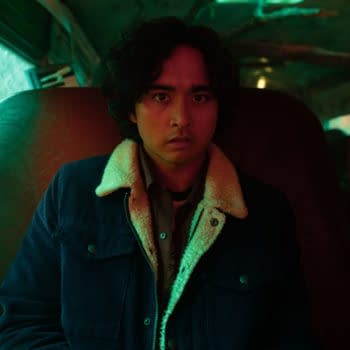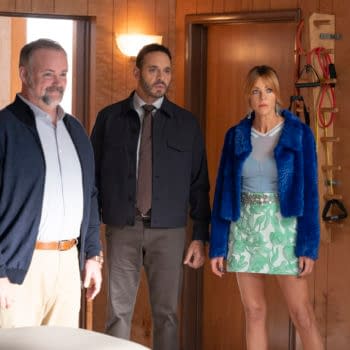Posted in: Apple, TV | Tagged: AppleTV, for all mankind, opinion, ronald d. moore, star trek
For All Mankind: The Star Trek Prequel We Deserved But Didn't Get
There's something to be said about the sci-fi drama For All Mankind as perhaps the greatest revisionist historical drama on television. Not that there's a large selection to go off of, but creators Ronald D. Moore, Ben Nedivi, and Matt Wolpert charted that path I wished Star Trek carved itself before Enterprise or even First Contact was conceived. As the franchise story goes, humanity found renewed purpose in the stars following World War III within the Trek timeline as Zefram Cochrane developed warp drive and unintentionally made first contact with Vulcans, as documented in the 1996 film and The Original Series.
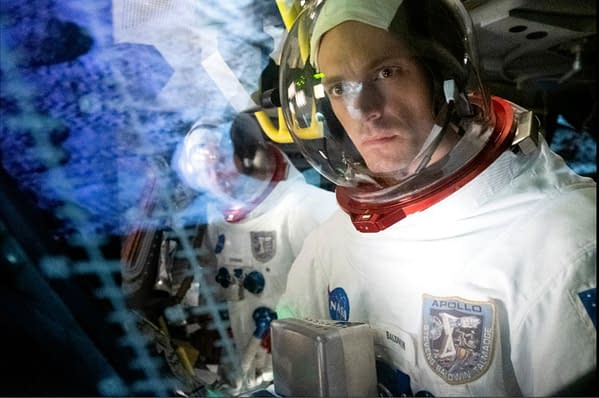
Who Knew For All Mankind Could Make Compelling Space Drama Out of NASA?
The current tragedy of the space program is that despite how much technology it's responsible for today, NASA hasn't made the concentrated effort to return to the moon or expand human exploration of Mars as a fictional incarnation in the AppleTV+ series. In the narrative of For All Mankind, the drive for NASA to continue its Apollo program is due to the Soviet Union becoming the first country to the moon and increased competition. Geopolitically, the Soviet Union never fell due to its economic instability brought on by continued militarization efforts from the Cold War against the United States. Building "Star Trek" from NASA would have just made sense before events like the Eugenics Wars and subsequent World War III.

In For All Mankind season three, the US, Russia, and the American independent company Helios collaborate to colonize and settle on Mars on various projects, not accounting for the various natural disasters because of drama. It's not just the survival side of things that provides the compelling narrative but the problem-solving of other simultaneously developing social narratives. As a revisionist history series, one of the main characters in Ellen Wilson (Jodi Balfour) was an astronaut-turned-politician. She became the first female President of the United States in 1992 as the Republican nominee after defeating Bill Clinton but remained a closeted lesbian to preserve her political career.
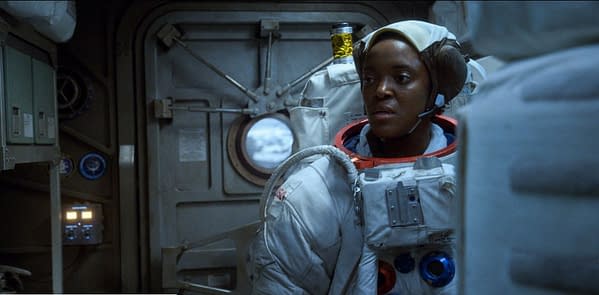
Stigmatizing laws like the anti-LGBT military policy of "Don't ask, don't tell," which was passed under Clinton in 1994, was done under Wilson instead once NASA astronaut and military serviceman Will Taylor (Robert Bailey Jr) came out during a broadcast. For All Mankind's nuanced way it confronts the issues on top of existing social tension throughout the decades is peak TV and organically fits within the deeper sociopolitical narratives of Star Trek.
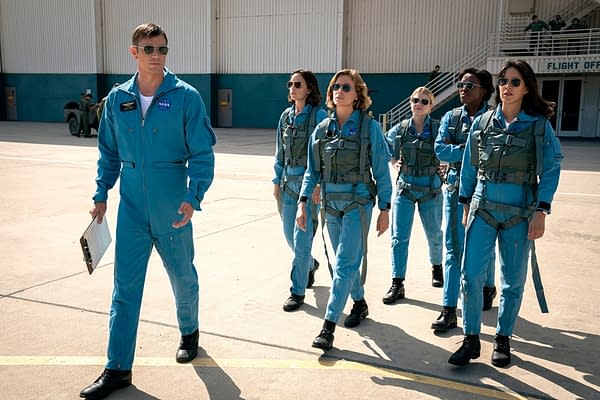
When Enterprise premiered on UPN in 2001, humanity largely was thrown on the deep end of the pool as explorers, but often, it felt more like a first draft of The Original Series than a true leap forward in science fiction. It felt more like an attempt to update the franchise and TOS, but with a more modern spin and familiar bland paste. There's nothing wrong with that for those used to the familiar taste, but fans were suffering from franchise fatigue. After the series ended in 2005, the franchise wouldn't see a TV return for another 12 years despite the success of the Kelvin Universe films since 2009.
Beyond First Contact, NASA's existence in the Star Trek timeline is largely confined to isolated episodes across the franchise, with the biggest being 1979's The Motion Picture. Even though For All Mankind and Star Trek don't exist in the same universe, I can imagine the accidents and disasters that happened on the AppleTV+ series could just as well happen on the Paramount franchise. Hell, my biggest grip with Star Trek, in general, is that we were gifted all this technology, but we never really saw the path and struggles to get there. Perhaps what is a teachable moment, when Paramount decides to develop another Star Trek prequel series, it would be better to see humanity struggle to get that future it eventually earns, and who better than to take inspiration from one of its former writers in Moore?






